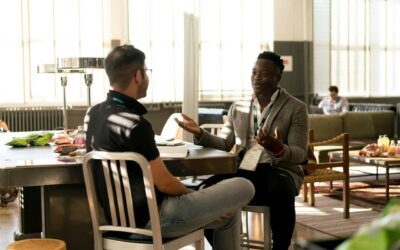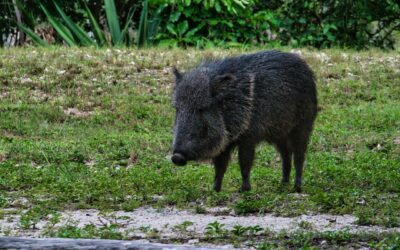One of the most undervalued cognitive skills is curiosity. As we enter adulthood, our desire to perform competency often translates to a muting of all of our natural curiosity in order to make it seem like we are as settled in as those around us.
I had a summer internship in Washington D.C when I was 21, and on the morning of my first day, I walked to the metro station, took the escalator down to my train, and was met with an eerie silence. As I stepped out onto the platform, I saw it crowded with people, almost all in suits or uniforms, facing toward the open space where the train would be, in complete silence. Many of them read newspapers, while some looked at nothing at all. This was surprising to me, the only subway I had ever been on was in New York City, as a tourist, and it seemed bursting with life, noise, and music. I joined them in their silent waiting, trying not to stand out.
When the train arrived, everyone silently filed on board, and I noticed the seats on one half of the car faced frontwards, and the other half faced backwards. People filed into seats with seemingly no preference at all, and when the train started, the people in the rear-facing seats seemed not to notice that they were shooting through the city backwards. This part of the D.C. metro was partially above ground, so these people were watching city blocks whiz by, facing out the back window. This seemed utterly bizarre to me, I wondered how they didn’t get nauseous, and tried not to stare.
I had so many questions: why had they installed the seats that way? Why not just put them along the windows like so many other cities? Why did the subway emerge above ground right in the middle of Arlington Cemetery (seemingly one of the worst possible places)? And who were all these people? Where were they going? Some were in dress blues, were they headed to the Pentagon or some important government meeting? Why was this metro so much quieter than the ones I had seen before? Did the way the seating was set up make people less likely to talk to each other? Then why was it quiet on the platform? And what was with all the newspapers? It seemed so old school!
When I arrived at my office, and started talking to the other interns, no one else mentioned the silent subway or half of the car facing the wrong direction, so I didn’t either. It surprised me less the next day, and then less the day after that. Before I knew it, I was just as likely to sit in a seat clearly facing backwards as anyone else, headphones in, maybe even looking at a newspaper.
My desire to look like an adult, to seem not like an outsider, overrode my natural curiosity about what seemed to me to be very bizarre behavior. Choosing to swallow my questions instead of vocalizing them made them take a backseat in my head, and I eventually stopped thinking about those questions altogether.
Reading about curiosity this week, it made me wonder, if I had asked the questions, what would have happened? Maybe the other interns would have agreed with me, or maybe they would have said, “Huh, I had never noticed that before,” or even better, “That’s not what my subway ride was like at all, maybe your specific route is different than others.” And imagine what curiosity and questions that could have led to! I’m not a transportation behavior specialist by any means, (if that’s a thing that anyone is) but I wonder what following my little questions, at the risk of looking silly, could have shown me about what it means to foster community, to make people feel comfortable, and more.
As more of a “real adult” than I was at 21, I wonder if I can create space for my own curiosity a bit more often. I wonder if I can still re-learn the skill of encountering something I don’t understand and being willing and eager to ask a dozen questions about it. As people working often in older, established institutions, it can be hard to ask curious questions about things that have functioned the same way for decades (if not centuries), but what interesting things could we learn if we did? What insights could we gain about our communities, our faiths, and our neighbors if we were willing to unleash a little curiosity, at the risk of looking a little silly?
Take some time this week to think back to your first days and weeks in your context. What surprised you? What did you not understand? What caught you off guard? When you can name those things, try to think back – what were the questions you had about them? Did you get them answered, or did you just stop asking them? And once you have those questions, pose them to the people around you, and invite them, not just to answer, but to wonder with you.
“Huh, I’m actually not sure who uses the library, I wonder who it could be the most useful to, and how we could make sure it serves them well?”
“We actually started doing the service at that time because that was when our old guest organist could come! But now that I think of it, she retired years ago, is there a different group we should schedule around?”
Questions are just questions, and we can offer that gentle curiosity not as an interrogation, or a cross-examination, but, as authentically as it emerged when you were new, and it can serve us, and our communities in powerful ways. If you want to learn more about the power of asking good questions, you can also check out this blog post, and if you are just wanting to feel your curiosity piqued, check out some ideas that have fascinated me lately, like microwave background radiation and the provenance of chicken bones.




0 Comments